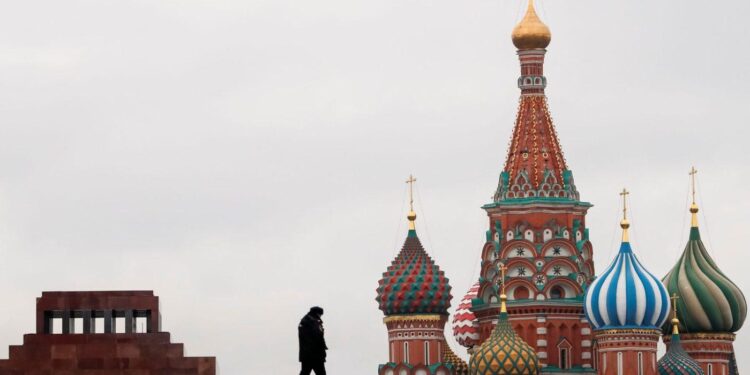Russia has issued a stern warning against escalating “nuclear rhetoric” amid heightened tensions sparked by recent remarks from former US President Donald Trump. The warning comes as diplomatic relations between Moscow and Washington remain strained, with officials on both sides cautioning against language that could exacerbate the risk of misunderstanding or conflict. This development highlights ongoing challenges in managing nuclear dialogue between the two global powers.
Russia Condemns Escalating Nuclear Language Amid US Political Turmoil
Moscow has sharply criticized the increasing use of nuclear rhetoric within the United States, warning that such language dangerously undermines global stability during a period of intense political upheaval. Officials in Russia stress that political discord in Washington should not spill over into the realm of strategic deterrence, emphasizing the need to maintain responsible discourse regarding nuclear capabilities. The Kremlin’s statement highlights concerns over how escalating verbal provocations could lead to heightened tensions and miscalculations on the world stage.
In response to recent comments from US political figures, Russian authorities have called for a return to diplomatic restraint and adherence to established arms control frameworks. Key points raised by Russia include:
- Urgent de-escalation to avoid unnecessary threats.
- Preservation of bilateral treaties like New START.
- Recognition that domestic politics should not influence nuclear policy.
| Aspect | Russia’s Position | US Political Climate |
|---|---|---|
| Use of Nuclear Language | Calls for restraint | Marked increase in rhetoric |
| Impact on Treaties | Advocates treaty preservation | Potential disregard amid turmoil |
| Global Security | Seeks stability | Risk of escalated tension |
Experts Analyze Risks of Heightened Nuclear Rhetoric in International Relations
Experts caution that escalating nuclear rhetoric among global powers significantly raises the stakes in international diplomacy, threatening to destabilize decades of delicate arms control agreements. Analysts argue that such confrontational language not only heightens mistrust but also complicates ongoing negotiations on disarmament and non-proliferation. The recent comments from Russian officials, responding to controversial statements made by former U.S. President Donald Trump, underscore the fragility of current diplomatic ties and the urgent need for renewed communication channels.
The risks associated with intensified nuclear discourse include:
- Increased chances of miscalculation: Aggressive posturing may lead to accidental escalations in crises situations.
- Undermining of existing treaties: Trust erosion can result in the collapse of agreements like the New START treaty.
- Global security instability: Heightened tensions compel other nations to reconsider and potentially expand their own nuclear arsenals.
| Factor | Potential Impact | Mitigation Effort |
|---|---|---|
| Nuclear Rhetoric Intensification | Increased global tensions | Diplomatic dialogue initiatives |
| Breakdown of Arms Treaties | Arms race resurgence | International arbitration talks |
| Mistrust Between Powers | Risk of conflict escalation | Confidence-building measures |
Calls for Diplomatic Restraint and Clear Communication to Prevent Misunderstandings
Global leaders and analysts alike emphasize the necessity of measured language in the current geopolitical climate. With tensions escalating following recent exchanges involving high-profile figures, the risks of misinterpretation have surged dramatically. Experts argue that any form of nuclear rhetoric, whether intentional or reactive, only undermines efforts to maintain strategic stability and peace. Calls are gaining momentum urging both sides to engage in constructive dialogue, prioritizing transparency to avoid inadvertent escalations.
Clear and accurate communication is championed as an indispensable tool to diffuse the burgeoning crisis. Observers point to several key practices that could aid in this process:
- Regular diplomatic consultations: Establishing continuous channels to address concerns promptly.
- Mutual commitments to de-escalation: Publicly reaffirming peaceful intentions to build trust.
- Fact-based media engagement: Counteracting misinformation with official and verified statements.
| Recommended Diplomatic Practices | Expected Outcome |
|---|---|
| Transparent communication channels | Reduced risk of misunderstandings |
| Joint crisis management workshops | Improved conflict resolution skills |
| Public reaffirmation of non-aggression | Enhanced international trust |
Final Thoughts
As tensions continue to simmer amid the ongoing dispute involving former U.S. President Donald Trump, Russia’s stern warning against the escalation of nuclear rhetoric underscores the fragile state of global diplomatic relations. With both sides emphasizing the need for responsible dialogue, the international community remains watchful, hopeful that reason will prevail over provocative language in the pursuit of lasting security and stability.
















